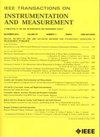A Prototype Learning Framework Based on Continual Learning for Motor Incremental Fault Diagnosis Under Few-Shot Conditions
IF 5.9
2区 工程技术
Q1 ENGINEERING, ELECTRICAL & ELECTRONIC
IEEE Transactions on Instrumentation and Measurement
Pub Date : 2025-09-02
DOI:10.1109/TIM.2025.3604938
引用次数: 0
Abstract
In the actual industrial scenario, motor fault classes gradually increase, and the fault data need to be acquired incrementally during the service. Continual learning (CL) has been introduced to the field of fault diagnosis (FD), aiming at constructing an FD model with continuous evolution capability. However, the current research has the following limitations: 1) assigning parameters for each task independently leads to a linear increase in model complexity and 2) it relies heavily on the quality and completeness of historical data and the research on incremental FD under few-shot conditions is not sufficient. To address the above limitations, this article proposes a prototype learning framework for motor incremental FD (PLFIFD) under few-shot conditions. First, a prototype classifier based on distance metric is proposed to avoid uncontrollable changes due to the update of parameters in the output layer. The prototype set is dynamically expanded instead of assigning network parameters individually. Second, a multiobjective loss function is designed to jointly optimize the classification boundary and prototype space distribution to enhance intraclass compactness and interclass separability and to improve the generalization ability under few-shot conditions and stability in dynamic scenarios. Finally, the effectiveness of PLFIFD is verified on induction motor (IM) and permanent magnet synchronous motor (PMSM).基于连续学习的原型学习框架在少采样条件下的电机增量故障诊断
在实际工业场景中,电机故障类别逐渐增加,在服务过程中需要逐步获取故障数据。将持续学习(CL)引入故障诊断领域,旨在构建具有持续进化能力的故障诊断模型。然而,目前的研究存在以下局限性:1)独立为每个任务分配参数导致模型复杂度线性增加;2)严重依赖历史数据的质量和完整性,对少射条件下增量FD的研究不够充分。为了解决上述局限性,本文提出了一种基于少镜头条件下运动增量FD (PLFIFD)的原型学习框架。首先,提出了一种基于距离度量的原型分类器,避免了由于输出层参数更新造成的不可控变化;原型集是动态扩展的,而不是单独分配网络参数。其次,设计多目标损失函数,共同优化分类边界和原型空间分布,增强类内紧密性和类间可分性,提高少弹条件下的泛化能力和动态场景下的稳定性;最后,在感应电动机和永磁同步电动机上验证了PLFIFD的有效性。
本文章由计算机程序翻译,如有差异,请以英文原文为准。
求助全文
约1分钟内获得全文
求助全文
来源期刊

IEEE Transactions on Instrumentation and Measurement
工程技术-工程:电子与电气
CiteScore
9.00
自引率
23.20%
发文量
1294
审稿时长
3.9 months
期刊介绍:
Papers are sought that address innovative solutions to the development and use of electrical and electronic instruments and equipment to measure, monitor and/or record physical phenomena for the purpose of advancing measurement science, methods, functionality and applications. The scope of these papers may encompass: (1) theory, methodology, and practice of measurement; (2) design, development and evaluation of instrumentation and measurement systems and components used in generating, acquiring, conditioning and processing signals; (3) analysis, representation, display, and preservation of the information obtained from a set of measurements; and (4) scientific and technical support to establishment and maintenance of technical standards in the field of Instrumentation and Measurement.
 求助内容:
求助内容: 应助结果提醒方式:
应助结果提醒方式:


